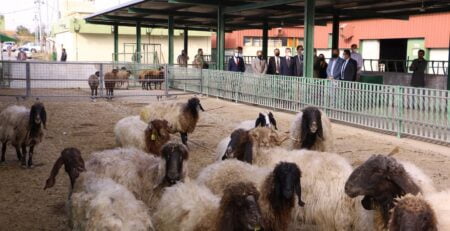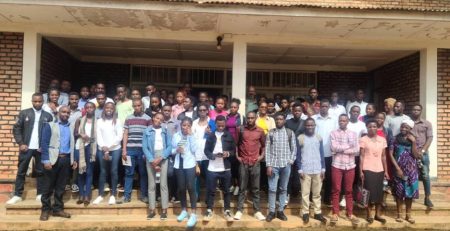LASER PULSE Restaurant Productivity Project in Vietnam Celebrates First Graduates
On December 9, 2022, the Duke University Center for International Development (DCID) and Institute for Sustainable Development at Vietnam’s National Economics University (ISD-NEU) celebrated the successful graduation of eleven entrepreneurs from their intensive, six-week courses on restaurant management, internal controls, and marketing. The graduates represent the first of 812 students who enrolled in the three courses this year, which were generously funded by the United States Agency for International Development (USAID) through the LASER PULSE program.
Example of graduation certificate given to students who have successfully completed one of the three six-week training programs.
The three courses are part of the Better Business project with the Office for Business Sustainable Development (SDforB) in the Vietnam Chamber of Commerce (VCCI) that aims to test whether more productive managers engage in less bribery. There is a broad academic agreement that corruption harms business growth and investment. While most scholars have emphasized the role of public institutions, policies, and bureaucrats in corrupt transactions, individual firms have largely been regarded as victims rather than perpetrators. Scholars in the Better Business project believe that firms proactively engage in regulatory inspection-related bribery for two reasons not appreciated in the literature. First, uncompetitive firms resort to cutting corners as a way to level the playing field with more productive competitors, and, as a result, must bribe inspectors to ignore regulatory violations. Second, in businesses with weak managerial control, subordinates commit bribery for their own pecuniary gain, without the knowledge of top managers. Therefore, improving restaurant management and productivity can reduce their incentives to bribe and business-to-government bribery. The scholars propose to test whether these logics apply by randomizing access management courses for restaurant owners and managers in Hanoi, Vietnam, measuring productivity improvements through bi-monthly only workbooks and corruption through specialized survey techniques.
To mark the achievements of the first graduates, Professors Edmund Malesky (DCID) and Canh Le (ISD-NEU), the principal investigators for the project, personally visited four restraunteurs in Ho Chi Minh City, Vietnam to deliver graduation certificates for successful competition of the course. The honored graduates, including Nguyễn Thị Thanh Vy, Nguyễn Thị Ngọc Thảo, and Vũ Thị Yến,, are all female entrepreneurs under the age of thirty, who took the course as a way to advance their goals expanding their current operations or launching into related food ventures. Ms. Vy was assigned to the management course, which she completed during her parental leave, as she planned the launch of her pork noodles (bún giò heo) outlet. Ms. Thao, who already has a successful line of cafés in the Nha Trang beach resort, used her time in the marketing course to prepare for the launch of a new ice cream and streetside creamery line. Ms. Yen took the management course to prepare for the expansion of her successful Phở restaurant into new markets in Ho Chi Minh City. A final student completed the management course to help her with introducing new branches of her chicken and sticky rice take-out store.
Professor Malesky delivers to Ms. Nguyễn Thị Ngọc Thảo, the owner of Creme Valley Ice Cream. Photo credit: Professor Canh Le of NEU.
Professor Malesky delivers to Ms. NguyễVũ Thị Yến, the owner of the Ông Cả Phở restaurant. Photo credit: Professor Canh Le of NEU.
The three management courses were designed by ISD-NEU under the LASER PULSE-funded initiative as part of a broader effort to assist Vietnamese restaurants in recovering from the COVID-19 crisis. Prior to COVID-19, the domestic-facing service sector had grown rapidly, expanding to account for 42% of GDP and 35% of the labor force. However, the impact of COVID-19 was devastating for this critical sector of the economy, as they were hit by a three-pronged crisis. First, businesses were negatively impacted by the health consequences of the disease. Infection and fear of infection kept consumers out of stores and restaurants and workers at home. Second, stringent regulations and lockdown policies prevented businesses from opening or increased the costs of staying open, leading to lower profits. Third, reduced economic activity had knock-on effects as unemployment and lost income further reduced business sales and other activities. By the end of the crisis, over one-third of Vietnamese restaurants had gone bankrupt and nearly all had suffered tremendous financial losses or been forced to layoff workers. A key goal for Vietnamese policy-makers and for USAID leaders in Vietnam is to stimulate the domestic service sector and help it recover its potential as a leading provider of growth and income for Vietnamese citizens.
Landing page for the restaurant management training course.
The online courses were designed to provide restaurants with the tools they needed to survive in the challenging market. Each course was divided into six half an hour lectures with exercises that allowed students to test their knowledge and apply the new lessons to their own operations. In addition, the courses included a peer learning component, where a successful restraunteur visited online to chat with students about his experiences and how he applied sound management principles in his own businesses. Courses, exercises, and peer learning videos were also posted on an easy-to-use portal, allowing students all over the country to study at their own pace. Restaurant managers and owners are busy, so the online approach allowed the greatest flexibility and convenience. Students could watch the lectures and finish the exercises when they were free of family and restaurant commitments. As can be seen from the demographics of the first graduates, the course flexibility was especially helpful for female entrepreneurs in Vietnam, who must balance demanding work and family responsibilities.
Professor An Dân hosting an online peer learning session with a Hanoi restraunteur.
The courses were promoted with a series of articles on the VNExpress website, Vietnam’s most popular online newspaper. The articles covered issues faced by restaurants in the post-COVID business environment, the importance of productivity for business success, interviews with celebrity chefs, and an interview with principal investigator Edmund Malesky about the NEU courses.
Inspired by the courses and research project, the Restaurant Association of Vietnam (RAV), the leading trade association for the Vietnamese hospitality industry, launched their own productivity initiative, which involved a series of mini-training courses modeled after Better Business materials and culminated in the Asian Food and Beverage Summit on Productivity on December 8, 2022. RAV strongly believes that enhancing productivity in the restaurant industry is critical for overcoming governance problems faced by restaurants and helping expand the exciting but struggling industry. As part of their productivity initiative, RAV was excited to include NEU course promotion materials and assistance with sign-ups in their presentations at the summit.
The delight of the eleven recent graduates and RAV’s enthusiasm in promoting the course to its sizable and influential membership provide an exciting foundation for the ongoing expansion of the Better Business productivity effort. The research team doubled-down on efforts to help the remaining students complete the course by the end of January. With the course behind the initial students, efforts will turn to measuring the outcome of the courses’ lessons on productivity and ultimately the ability to avoid bribe requests.








Leave a Reply
You must be logged in to post a comment.